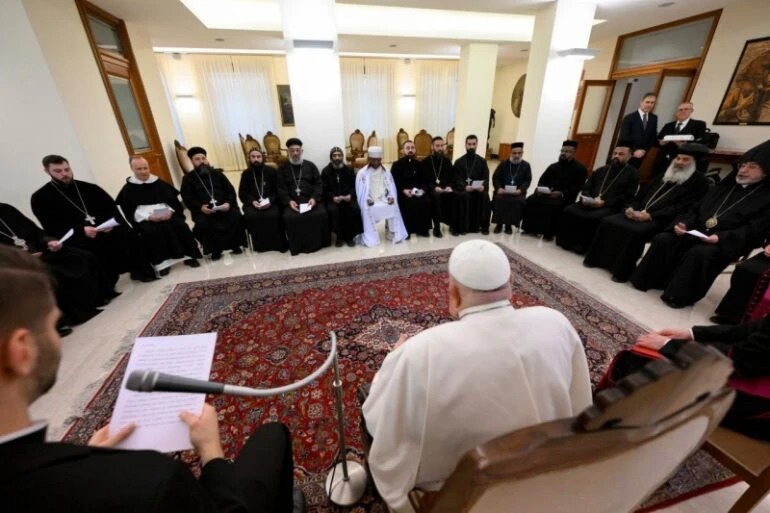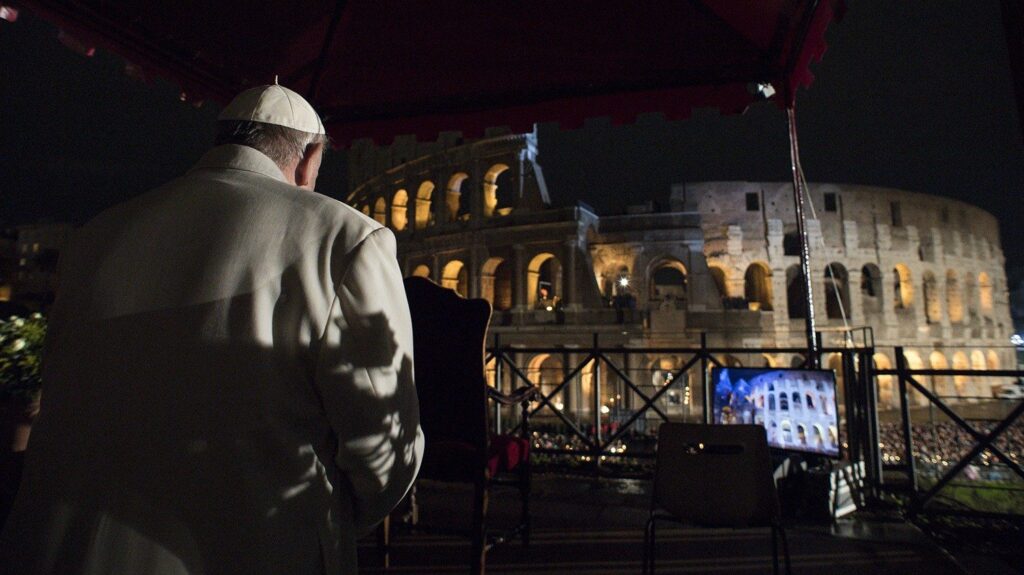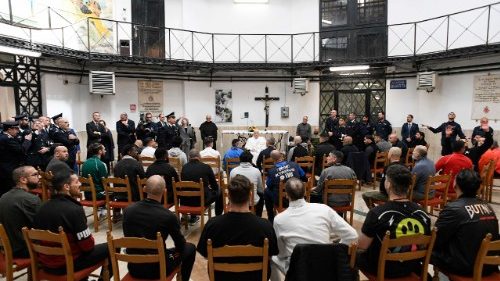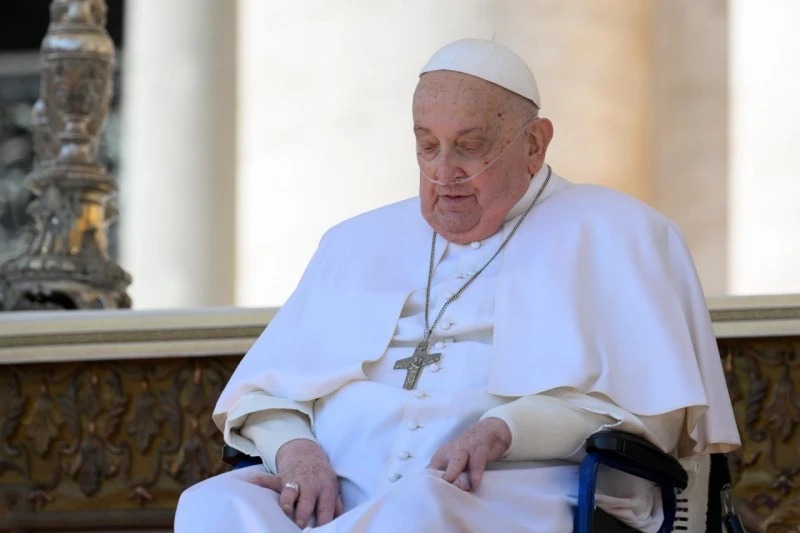The Pope: Union with God necessarily passes through unity among us
To the young priests and monks of the Orthodox Churches

Francis receives young priests and monks of the Eastern Orthodox Churches and delves into the triple meaning of the “symbol” to express the harmony of Christian truths: the theological, the ecclesiological and the spiritual.
***
Speech delivered
Dear Brothers,
“How very good and pleasant it is when kindred live together in unity!” (Ps 133:1). With these words of the Psalmist, I offer you a warm welcome and I express my joy for this visit of young priests and monks of the Armenian, Coptic, Ethiopian, Eritrean, Malankara and Syrian Oriental Orthodox Churches. My fraternal greeting goes to Archbishop Khajag Barsamian and to Bishop Barnabas El-Soryani, who are accompanying you. Through you, I wish to greet my venerable and dear brothers, the heads of the Oriental Orthodox Churches.
This is the fifth Study Visit for young Oriental Orthodox priests and monks organized by the Dicastery for Promoting Christian Unity. Similar visits for Catholic priests have been prepared by the Armenian Catholicosate of Etchmiadzin and the Malankara Orthodox Syrian Church. I am most grateful for this “exchange of gifts” promoted by the Joint International Commission for Theological Dialogue between the Catholic Church and the Oriental Orthodox Churches, because it enables the dialogue of charity to go hand in hand with the dialogue of truth.
Your visit has particular significance this year, as we celebrate the seventeenth centenary of the Council of Nicaea, the first ecumenical Council, which professed the Symbol of Faith shared by all Christians. I would like, then, to reflect with you on that term, “Symbol”, which in its threefold meaning has powerful ecumenical implications.
In the theological sense, a symbol sets forth the ensemble of the principal truths of the Christian faith, which harmoniously complement one another. In this sense, the Nicene Creed, which synthetically sets forth the mystery of our salvation, is exemplary and unparalleled.
The Symbol also has an ecclesiological significance. Not only does it unite truths, it also unites believers. In antiquity, the Greek word symbolon indicated half of a document broken in two, to be presented as a sign of identity. The Symbol thus serves as a sign of identity and communion between believers. Each individual possesses the faith as a “symbol”, which only finds its full unity together with others. We need one another in order to be able to confess the faith. That is why the Nicene Symbol, in its original version, uses the plural form, “We believe”. Carrying this image a step further, I would say that we Christians, still divided, are like “shards” who must recover unity in the confession of the one faith. For we hold the Symbol of our faith like a treasure in vessels of clay (cf. 2 Cor 4:7).
And so, we come to the third meaning of the Symbol, its spiritual significance. We must never forget that the Creed is above all a prayer of praise that unites us to God: union with God necessarily takes place through unity among us Christians who proclaim the same faith. Whereas the devil divides, the Symbol unites! How beautiful it would be if, each time we proclaim the Creed, we felt united with Christians of all traditions! The proclamation of our common faith, in fact, requires before all else that we love one another, as the Eastern liturgy exhorts us to do before the recitation of the Creed: “Let us love one another, that in unity of spirit we may profess our faith in the Father, in the Son and in the Holy Spirit”.
Dear brothers, I hope that your presence will become a “symbol” of our visible communion, as we persevere in pursuit of that full unity that the Lord Jesus so ardently desired (cf. Jn 17:21). I assure you of my prayer for each of you and for your Churches, and I count on your own prayers for me and for my ministry. May the Lord bless you and may the Mother of God protect you.
And now, I would propose that we proclaim together the Nicene Creed, each of us in his own language. [I believe…]
Related

Stations of the Cross 2025: Pope Francis leads Good Friday prayer with his own meditations
Exaudi Staff
18 April, 2025
32 min

Pope Francis brings hope to prisoners: visit to Regina Caeli on Holy Thursday
Exaudi Staff
18 April, 2025
1 min

“Priests as Bearers of Hope”: Pope Francis’ Call at the Chrism Mass
Exaudi Staff
17 April, 2025
1 min

Pope Francis’ Catechesis: God always comes to find us!
Exaudi Staff
17 April, 2025
5 min
 (EN)
(EN)
 (ES)
(ES)
 (IT)
(IT)

